Renting Property in Malta
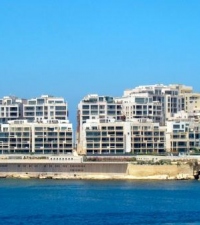
- You search for a property to rent in Malta once you arrive in Malta
- Most properties are rented through a real estate agent
- Most properties are rented fully furnished
Properties
Malta has a wide range of property options available to prospective renters - traditional townhouses, historic buildings, countryside villas, modern flats - there is something for every taste and budget.
Most properties in Malta are rented fully furnished. Such properties include indoor furniture, linens and draperies, dishes and cutlery, cookware, outdoor furniture, rubbish bins, TVs and electronics, etc.
Most residential properties in Malta are constructed of stone and concrete, and have few windows (except in new buildings). Interior walls are plastered. Roofs in Malta are flat and accessible to renters for maintenance and utility installation. Most flooring in Maltese flats is tile.
In most Maltese flats, kitchen, living and dining rooms are combined into one open plan space. Standard living room furniture includes a sofa/couch, TV/TV stand, and possibly a dining set. Standard kitchen appliances include a European sized fridge, a gas hob (electric stoves are less common), toaster, and kettle. Some kitchens may also have a microwave and a small freezer.
Standard bedroom furniture includes a bed, wardrobe and/or dresser, and bedside tables. There are generally no closets in bedrooms.
Bathrooms have a shower and/or tub, sink, toilet, and sometimes a bidet. Bathrooms do not generally have fans or venting systems. Bathrooms are typically entirely tiled and have separate water heaters.
Many Maltese flats have small balconies or terraces. Some flats may include a clothes washer (dryers are less common). Laundry is generally hung outside to dry.
Leases, Fees & Extras
Comparative to the rest of Europe and North America, rental fees in Malta are very affordable. In a high demand area you can expect to pay €1,000-€1,500/month for a 2-3 bedroom modern flat with a sea view. In a more suburban, residential area you can pay €300-€700/month for a 1-2 bedroom flat. As in any country, rental fees are relative to size, age, and location of property.
Short-term rental fees (6 months or less) are higher than long-term rental fees (6 months or more). Your lease term can begin on any day of the month in Malta. Rental payments are due on start date of your lease term, unless otherwise indicated in your lease.
When signing a lease you may be required to pay a damage deposit (one month’s rent) and the first and last month’s rent.
Some properties in Malta have parking available in a basement or underground space. If parking is a requirement for you, you should let your real estate agent or landlord know. Parking is sometimes included in your rental fee, but more often you will be required to pay a supplementary monthly fee (€50-€100/month).
Some properties in Malta allow pets. If you have a pet, you should let your real estate agent or landlord know. You may be required to provide references or pay a pet deposit.
Utilities
Utilities are not usually included in your monthly rental fee. In most cases, renters pay a supplementary monthly fee to their landlord (€50-€100/month) and settle up on the outstanding balance of utility bills at the end of their lease term.
Real Estate Agent
Renting property in Malta is generally done through a real estate agent. Real estate agents receive a commission of 50% of the rental fee from you, and 50% of the rental fee from your landlord. Some agents will negotiate rental fees for you, and are able to advise on utilities, neighborhoods, and lease terms.
Major real estate agencies in Malta include Remax Malta, Dhalia, Simon Mamo, Sara Grech, Belair, and Frank Salt. You are not obligated to work with the first agent you contact if you are dissatisfied with his/her services or properties.
Renting property in Malta is generally done once you arrive on the island. Contact a real estate agent one month prior to your arrival to set up a meeting or viewing appointment. You should provide your agent with a list of property requirements at this time, including your budget and the localities/villages you would like to live in. He/she may provide you with a list of available properties in advance.
When you first arrive in Malta you should plan to stay at a hotel for three days to one week. You will then attend viewing appointments with your agent at available properties. Once you find a property you wish to take you can draft and sign a lease within 1 to 2 days. In most cases you should be able to move in immediately.
If you must rent a property before you arrive in Malta, you may contact a real estate agency and correspond with an agent via email. Your agent should be able to provide you with the details and photos of available properties. While abroad you can sign a lease and email or fax it to your agent, and wire deposits and first month’s rent to your agent or landlord.
Renting Directly
Although uncommon, you can rent property directly from landlords in Malta. To find properties available to rent directly from landlords you can check the classified section of the Times of Malta newspaper (online or in print), or classifieds web sites such Malta Park and Izjed.com.
Helpful Tips
- Search real estate agency web sites to get an idea of what properties in Malta look like and cost. Be aware that agencies do not often update their sites, and the availability of properties should be confirmed directly with an agency.
- There are separate utility rates in Malta depending on how many residents/non-residents are registered to a property. Be sure to check with your landlord and have the registration type of your property verified in writing to ensure you are paying a fair rate, or, register the utilities of the property in your name if possible. To register utilities in your name you you must have a Maltese ID card.
- Most real estate agencies will only provide you with the location (village) of a property. To get a specific street name you must ask.
- Roadside garbage collection is daily (typically before noon) and is organized by your local village council.
- Roadside collection of recyclables is weekly, or, you may be required to bring your recyclables to community drop centers, organized by your local village council.
Most buildings have lifts but they are typically small and inappropriate for moving furniture in. Large furniture is moved using cranes.
By Jess Gerrow, who traded city life in Canada for island life in the Mediterranean two years ago. She is a postgraduate marketing student, blogger, and freelance writer.
- My Life Abroad -
A selection of expat stories

"A fun compulsive read!"
J. Matcham, Amazon
"I strongly advise people ready to live abroad to read this book!"
Patrice, Amazon

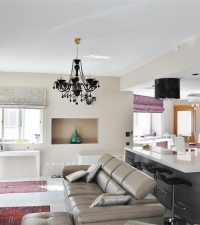 The procedures of buying and renting property in Malta
The procedures of buying and renting property in Malta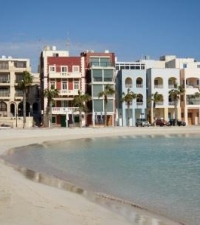 Where to Live in Malta
Where to Live in Malta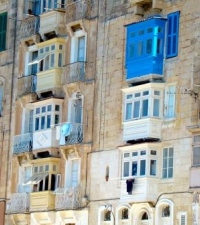 Buying Property in Malta
Buying Property in Malta
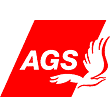 AGS Worldwide Movers
AGS Worldwide Movers Fexco payment solutions
Fexco payment solutions 1stMove Car Shipping
1stMove Car Shipping Embassies and Consulates in Malta
Embassies and Consulates in Malta